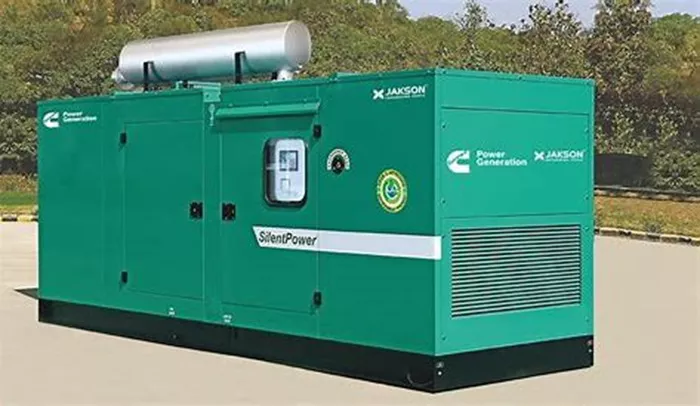Diesel generators have carved out a significant niche in the power generation domain, powering various sectors from construction sites to hospitals during outages. However, like any technology, they aren’t without their downsides. In this article, we’ll explore the disadvantages of diesel generators in detail, ranging from high initial costs to environmental and maintenance concerns.
High Initial Investment
One of the most immediate hurdles when considering a diesel generator is its cost. Diesel generators often come with a hefty price tag. Their complex engineering, featuring advanced fuel injection systems, heavy – duty engine blocks, and durable components, contributes to this high cost.
For instance, compared to gasoline generators of similar power output, diesel generators can be significantly more expensive. This cost differential can be a major deterrent for small – scale users, such as homeowners or small businesses with limited budgets. These users may find it more feasible to opt for more affordable alternatives, like gasoline or inverter generators, especially if they only require power for occasional use.
Noise Pollution
Diesel generators are notorious for the noise they produce during operation. The combustion process in diesel engines, which relies on compression ignition, creates a characteristic “diesel knock” sound. This noise is a combination of various factors. The high – pressure fuel injection, rapid combustion, and mechanical vibrations all contribute to the overall noise level. In urban or residential areas, this noise can be a major nuisance.
For example, in a quiet neighborhood, the continuous rumbling of a diesel generator can disrupt the peace, affecting residents’ quality of life. In some cases, local noise regulations may even prohibit the use of diesel generators during certain hours or in specific areas due to the excessive noise they generate.
Noise Generation Mechanisms
The noise from diesel generators can be categorized into several types. Exhaust noise, a high – energy, pulsating sound, is a significant contributor. It’s produced as high – pressure exhaust gases are expelled from the engine. Mechanical noise, resulting from the movement of engine components like pistons, crankshafts, and valves, also adds to the din. Additionally, cooling fans and air intake systems generate noise as they operate to keep the engine cool and supply it with fresh air.
Emission Concerns
Diesel generators are known to emit a range of pollutants, which pose significant risks to both the environment and human health. They release nitrogen oxides (NOx), particulate matter (PM), sulfur dioxide (SO₂), and hydrocarbons. These emissions can lead to the formation of smog, acid rain, and contribute to respiratory problems in humans.
Health and Environmental Impact
NOx emissions can react with other pollutants in the atmosphere to form ground – level ozone, a major component of smog. Prolonged exposure to high levels of ozone can cause respiratory issues, such as coughing, shortness of breath, and aggravated asthma. Particulate matter, especially fine particles (PM2.5), can penetrate deep into the lungs, leading to serious health problems, including lung cancer, heart disease, and respiratory infections.
Regulatory Response
In response to these concerns, many countries and regions have implemented strict emission standards for diesel generators. These regulations require the use of advanced emission control technologies, such as diesel particulate filters (DPF), selective catalytic reduction (SCR), and exhaust gas recirculation (EGR). While these technologies help reduce emissions, they also add to the complexity and cost of diesel generators.
Complex Maintenance
Although diesel engines are generally durable, maintaining them can be a complex and costly affair. Diesel engines operate at high compression ratios, which means their components are subject to greater stress. As a result, they require specialized maintenance procedures and high – quality parts.
Fuel System Maintenance
The fuel system in diesel generators is particularly prone to issues. Diesel fuel is more likely to contain contaminants, such as water and impurities. These can clog fuel filters, damage fuel injectors, and disrupt the fuel injection process. Regular fuel system maintenance, including frequent filter changes and fuel quality checks, is essential to ensure optimal performance.
Lubrication & Cooling Systems
Diesel engines also require careful attention to their lubrication and cooling systems. Due to the high operating temperatures and pressures, diesel engines need high – quality lubricants to reduce friction and wear. Additionally, the cooling system must be regularly maintained to prevent overheating, which can cause severe engine damage.
Fuel Storage Challenges
Diesel fuel storage presents several challenges. First, diesel is classified as a hazardous material, and storing it requires compliance with strict safety regulations. Storage facilities must be designed to prevent leaks, spills, and fires. Additionally, diesel fuel can degrade over time, especially when exposed to moisture, air, and temperature fluctuations.
Degradation & Contamination
Degraded diesel fuel can lead to poor engine performance, reduced fuel efficiency, and increased emissions. Moisture in the fuel can cause corrosion in the fuel system and promote the growth of microorganisms, which can clog filters and damage engine components.
Safety & Regulatory Requirements
Storing large quantities of diesel fuel often requires special permits and the implementation of safety measures, such as fire – resistant storage tanks, spill containment systems, and ventilation equipment. These requirements add to the cost and complexity of fuel storage.
Conclusion
Diesel generators, while offering reliable power in many situations, come with a number of drawbacks. The high initial investment can be a financial burden for many users, and the noise pollution they generate can be a nuisance in residential and urban areas. Their significant emissions pose risks to both the environment and human health, and the complex maintenance requirements and fuel storage challenges add to the overall cost and hassle of ownership.
However, understanding these disadvantages is crucial for making an informed decision. Depending on your specific power needs, budget, and environmental considerations, you can determine whether a diesel generator is the right choice for you, or if alternative power sources might be more suitable.

